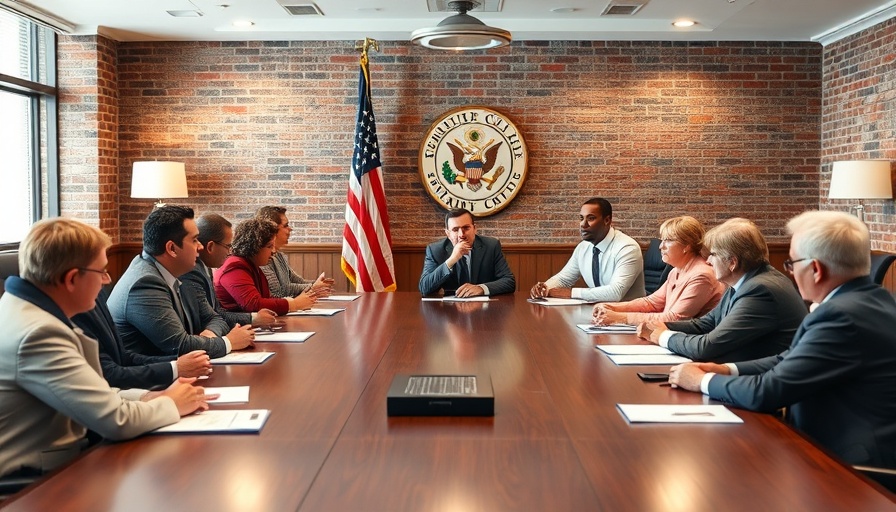
Emotional Deadlock: Fort Myers City Council's Immigration Decision
The Fort Myers City Council is currently at an impasse regarding immigration policies, which has led to a passionate debate that transcends local borders. The recent decision not to approve a partnership with Immigration and Customs Enforcement (ICE) has sparked a political firestorm, pitting the city against state officials who are threatening financial repercussions.
Understanding the Controversy
In a dramatic council meeting, members voted 3-3 on a proposed agreement with ICE that would allow local law enforcement to perform certain immigration enforcement duties. Mayor Kevin Anderson expressed deep disappointment, warning that rejecting the partnership compromises public safety and risks the loss of hundreds of millions in grant funding vital for community programs. He stated, “If we’re willing to sacrifice this grant money for people who don’t have the legal right to be here, the burden of replacing that grant money… is going to fall on our taxpayers.”
Political Ramifications: State Response and Threats
The political fallout is significant, as state officials, including Governor Ron DeSantis and Attorney General James Uthmeier, have publicly criticized the council’s decision. Uthmeier has denounced the council’s rejection of ICE training, characterizing it as a move that could transform Fort Myers into a 'sanctuary city.' In a strongly worded letter, he cautioned that failure to reverse this decision could lead to contempt charges and potential removal from office.
A Community Divided: Pro and Con Perspectives
The council's split reflects broader national debates about immigration and community safety. Council members Darla Bonk, Diana Giraldo, and Terolyn Watson argue against the partnership, citing concerns about racial profiling and affirming the positive contributions of immigrants to the area. This emotional clash demonstrates how deeply personal and impactful these policies are for residents. Meanwhile, supporters of the agreement believe it is essential for enhancing public safety and managing crime effectively in Southwest Florida.
Future Implications: What's Next for Fort Myers?
This deadlock raises important questions about the future of Fort Myers and its relationship with both local communities and state authorities. As discussions continue, residents are left to ponder how government decisions can affect their daily lives and the resources available to them. The outcome of this controversy could redefine policy frameworks across Florida, especially regarding how local governments engage with federal immigration laws.
Community Involvement: What Can You Do?
Residents of Fort Myers and Southwest Florida can take active roles in this ongoing debate. Engaging with local representatives, attending City Council meetings, and sharing personal stories can help humanize the discussion around immigration policy. Advocacy for community-centered solutions can ensure that all voices are heard, fostering a sense of unity amid division.
Call to Action: The Time to Engage is Now
As this pivotal issue unfolds, now is the time for residents to voice their opinions and engage in meaningful dialogue about the future of their community. Participate in local meetings, discuss your views with neighbors, and ensure your perspective is included in the larger conversation. The decisions your city council makes could shape the future of Fort Myers in ways that will impact everyone. Don't let your voice go unheard!
 Add Row
Add Row  Add
Add 


Write A Comment